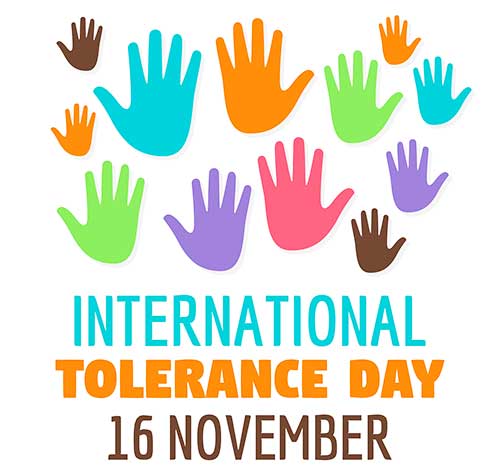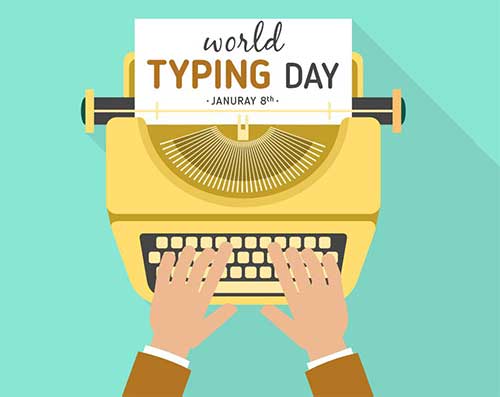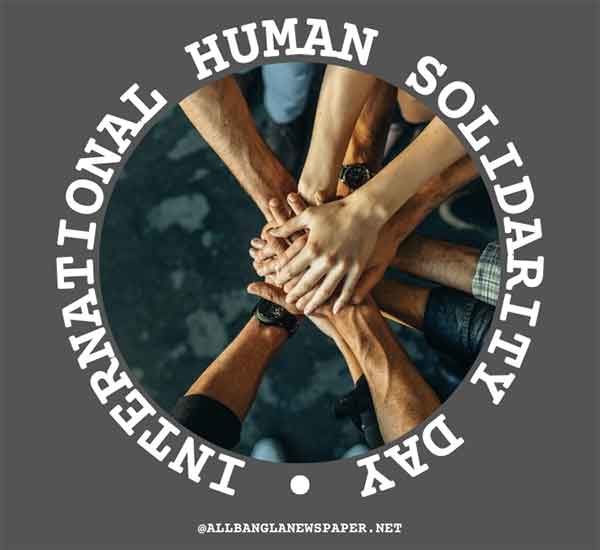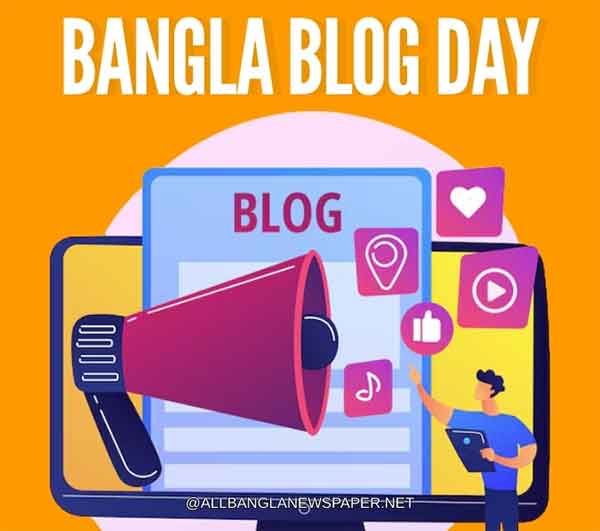
In today’s fast-paced, diverse world, tolerance has become a cornerstone of peaceful coexistence. Observed annually on November 16, the International Day for Tolerance reminds people of the importance of understanding, acceptance, and mutual respect among all people, regardless of their cultural, religious, or personal beliefs. This day, established by the United Nations in 1995, not only encourages tolerance as a moral duty but also as a practical way to promote harmony within societies and between nations.

The Significance of the International Day for Tolerance
The International Day for Tolerance encourages reflection on how our daily actions, words, and attitudes shape the world around us. Tolerance goes beyond merely “putting up” with others; it involves recognizing and respecting differences as valuable components of a diverse world. Celebrating this day fosters a collective commitment to respecting human rights, promoting inclusivity, and taking a stand against prejudice and discrimination.
Why Tolerance is Vital in Modern Society
In a world shaped by migration, economic globalization, and technological connectivity, interactions between people of different backgrounds are inevitable. As cultures mix and ideas cross borders, embracing tolerance is essential for harmonious relationships. However, tolerance isn’t always easy to practice. Societal divisions based on race, religion, gender, and politics often lead to tension, misunderstanding, and even conflict. The International Day for Tolerance advocates for bridging these divides by fostering empathy and understanding.
By celebrating tolerance, communities can work toward reducing hostility and cultivating a peaceful society. As individuals, practicing tolerance helps us gain new perspectives and develop open-mindedness that enriches our experiences.
The Role of the United Nations and UNESCO in Promoting Tolerance
The United Nations Educational, Scientific, and Cultural Organization (UNESCO) has been a major proponent of tolerance since 1995 when it adopted the Declaration of Principles on Tolerance. This document outlines the core elements of tolerance and emphasizes its role in protecting human rights and upholding democratic values.
UNESCO has introduced educational initiatives, public policies, and social campaigns to promote tolerance worldwide. Through partnerships with schools, governments, and NGOs, UNESCO actively works to build societies where individuals feel safe, valued, and empowered to share their unique perspectives without fear of discrimination.
Educating Future Generations on Tolerance
Teaching tolerance to young people is a fundamental part of creating lasting change. Schools, family environments, and communities play a critical role in shaping children’s attitudes toward diversity. Early education on tolerance encourages children to recognize the value of different perspectives and fosters the empathy needed to live in a diverse world.
Integrating tolerance into education helps prepare future generations to resolve conflicts constructively, challenge prejudices, and support human rights. Many educators and organizations create programs that engage young minds, encouraging open dialogues about cultural differences and helping children develop respect for all people.
Promoting Tolerance through Media and Technology
Media and technology are powerful tools for spreading awareness about tolerance and combating discrimination. Social media, news outlets, and digital platforms have the capacity to reach a broad audience and foster positive narratives. At the same time, misinformation and hateful speech can circulate widely online, challenging tolerance.
Promoting responsible media consumption and critical thinking skills can empower individuals to discern reliable information and reject content that encourages prejudice. By using technology to share stories of acceptance and resilience, society can counter divisive rhetoric and foster empathy. The International Day for Tolerance encourages using digital spaces to spread messages of unity and respect.
Addressing the Challenges of Intolerance and Discrimination
Intolerance manifests in numerous ways, including racism, xenophobia, sexism, and religious discrimination. Discrimination can be subtle, such as implicit biases, or more overt, like hate speech and violence. Tackling intolerance requires addressing both individual attitudes and structural inequalities that perpetuate discrimination.
Acknowledging and confronting our own biases is essential on a personal level. Institutions, meanwhile, play a significant role in implementing policies that promote equality. The International Day for Tolerance highlights the need for laws and initiatives that protect marginalized communities and create an inclusive society.
The Role of Communities in Fostering Tolerance
Communities are the heart of cultural diversity and play a vital role in promoting tolerance. Through community-led initiatives, people can come together to celebrate their differences and work toward shared goals. Events like cultural festivals, open dialogues, and awareness campaigns help build connections among community members.
Local organizations and leaders can use the International Day for Tolerance to organize activities that bring neighbors together, encourage open conversations, and reduce prejudice. These efforts help create environments where everyone feels valued and supported.
The Intersection of Tolerance and Human Rights
Tolerance and human rights are deeply interconnected. The Universal Declaration of Human Rights, adopted by the United Nations in 1948, asserts that all people are entitled to equality, freedom, and dignity. However, these ideals cannot be fully realized without tolerance.
By accepting each other’s differences, individuals help to uphold human rights, while intolerance often leads to their violation. For example, when a society discriminates against certain groups based on race, religion, or gender, it denies these groups their rights. The International Day for Tolerance is a call to action for people to support human rights by practicing understanding and acceptance.
Learning from History’s Lessons on Intolerance
History is filled with examples of the devastating effects of intolerance, from genocides to wars driven by prejudice. Learning from these events is crucial for building a future rooted in peace and understanding. Remembering historical injustices helps society recognize the dangers of prejudice and strengthens the resolve to prevent similar events in the future.
Educational programs, museums, and memorials dedicated to past tragedies serve as reminders of the consequences of intolerance. They also provide opportunities for reflection and growth, encouraging individuals to commit to building a more inclusive world.
Global Events That Promote Tolerance and Social Justice
Beyond the International Day for Tolerance, several global observances promote values that align with tolerance and acceptance. For example, the Day of the Imprisoned Writer Honoring Freedom of Expression and the Fight for Justice sheds light on the plight of writers who face persecution due to their views, reinforcing the importance of free speech—a fundamental component of tolerance.
World events like International Women’s Day, the International Day for the Elimination of Racial Discrimination, and World Refugee Day bring attention to social justice issues and inspire actions that promote tolerance. Each observance provides a platform for raising awareness and addressing the challenges faced by various marginalized communities.
How Individuals Can Practice Tolerance Daily
Embracing tolerance starts with personal actions. Small steps, such as listening actively, avoiding stereotypes, and showing empathy, contribute to a more inclusive world. By remaining open to diverse perspectives and challenging our own biases, we can contribute to building a society based on mutual respect and understanding.
Celebrating differences rather than merely tolerating them encourages a deeper appreciation for the richness that diversity brings. Being aware of our own biases and committing to self-improvement helps us engage with others more positively.
Taking Action for Tolerance: Moving Beyond Words
It’s not enough to discuss tolerance; taking meaningful action is essential. Volunteering with organizations that support marginalized groups, participating in awareness campaigns, and promoting inclusive practices in the workplace are tangible ways to foster tolerance. Acts of kindness and support can create ripples of positivity that reinforce the importance of tolerance within our communities.
On the International Day for Tolerance, people around the world are encouraged to participate in initiatives that celebrate diversity and challenge intolerance actively. These actions can range from organizing educational workshops to engaging in conversations that broaden understanding and empathy.
Building a World Rooted in Tolerance and Unity
The International Day for Tolerance is more than a date on the calendar; it’s a call to cultivate respect, empathy, and inclusivity in our daily lives. Tolerance empowers societies to rise above hatred and prejudice, creating spaces where everyone has the freedom to be themselves without fear of discrimination. By celebrating tolerance, we affirm our shared humanity and our commitment to a future where diversity is cherished.
Practicing tolerance is not just a one-day observance but a lifelong journey that strengthens communities, honors human rights, and builds a more just world. Through collective effort, education, and compassion, we can embrace a culture of tolerance that transcends borders, languages, and beliefs, laying the foundation for a peaceful and inclusive future.
#InternationalDayForTolerance #Tolerance #UnitedNations





